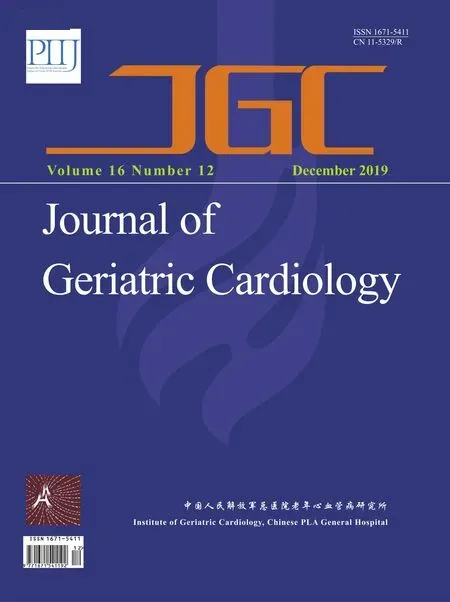Do older patients get takotsubo syndrome differently?
Monika Budnik, Janusz Kochanowski, Martyna Zaleska, Grzegorz Opolski
1st Chair and Department of Cardiology, Medical University of Warsaw, Warsaw, Poland
Keywords: Takotsubo syndrome
We read with great interest case report of 99-year-old patient with takotsubo syndrome (TTS) presented by Yener?a?,et al.,[1]especially because four years ago, we described the oldest so far person diagnosed with TTS: a 98-year old woman.[2]
During analysis of your article a few comments and questions occurred to us.
TTS is usually preceded with a stress factor.[3]Do you know, or can you suspect the TTS cause in this patient? Was she diagnosed with primary or secondary TTS? TTS often occurs in people with ongoing or previous neurological or psychiatric disorder.[4]The patient had history of Alzheimer’s disease. Did she have any new neurological symptoms during described hospitalization? A very good diagnostic test for TTS is NT-proBNP to troponin I ratio.[5]The authors presented only troponin I level. Is the NT-proBNP level during following days known? There are no randomized trials regarding treatment of patients diagnosed with TTS. That is why this topic arouses controversy. Presented woman did not have any lesions in coronary arteries. Why did she receive dual antiplatelet treatment? What made you decide to continue this therapy after discharge? Additionally, the patient received 40 mg of enoxaparine twice a day. What was the creatinine level?
The elderly are always a diagnostic and therapeutic challenge. Mostly because of superposable symptoms of different diseases and comorbidity. Subjects over 75 constitute about 30% of all patients with TTS. We would highly appreciate your response to our questions.
 Journal of Geriatric Cardiology2019年12期
Journal of Geriatric Cardiology2019年12期
- Journal of Geriatric Cardiology的其它文章
- Electrical cardioversion for supraventricular arrhythmias in octagenarians
- Authors’ reply
